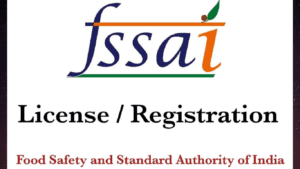In today’s digital age, staying ahead in the competitive landscape of online marketing requires leveraging the right tools and technologies. From search engine optimization (SEO) to social media marketing, email campaigns to analytics, range of online marketing tools are available to streamline processes, boost efficiency, and drive results. In this comprehensive guide, we’ll explore the diverse range of online marketing tools at your disposal and how to harness their power to achieve success in the digital realm.
Understanding Online Marketing Tools
Online marketing tools encompass a wide array of software solutions and platforms designed to facilitate various aspects of digital marketing. However, these tools are instrumental in optimizing campaigns, analyzing performance metrics, automating repetitive tasks, and enhancing overall marketing effectiveness. Whether you’re a small business owner, a digital marketer, or a seasoned entrepreneur, incorporating the right mix of online marketing tools into your strategy can be a game-changer in achieving your business objectives.
Types of Online Marketing Tools
1. SEO Tools:
SEO tools are essential for optimizing your website’s visibility in search engine results pages (SERPs) and driving organic traffic. From keyword research tools like SEMrush and Ahrefs to on-page optimization tools like Moz and Yoast, SEO tools help identify opportunities, analyze competitors, and track keyword rankings to improve search performance.
2. Social Media Marketing Tools:
Social media marketing tools enable businesses to manage, schedule, and analyze their social media presence across various platforms. Tools like Hootsuite, Buffer, and Sprout Social offer features for content scheduling, audience engagement, social listening, and performance tracking, helping businesses maximize their social media ROI.
3. Email Marketing Platforms:
Email marketing remains one of the most effective channels for reaching and engaging with your target audience. Platforms such as Mailchimp, Constant Contact, and HubSpot allow businesses to create, send, and track email campaigns with ease. These platforms offer features for list segmentation, automation, personalization, and A/B testing to optimize campaign performance and drive conversions.
4. Content Marketing Tools:
Content marketing tools are invaluable for creating, distributing, and measuring the effectiveness of content across various channels. Tools like CoSchedule, BuzzSumo, and Grammarly help with content ideation, creation, optimization, and distribution, ensuring that your content resonates with your target audience and drives meaningful engagement.
5. Analytics and Tracking Tools:
Analytics tools provide insights into the performance of your marketing efforts and enable data-driven decision-making. Google Analytics is a popular choice for tracking website traffic, user behavior, and conversion metrics. Additionally, tools like Google Tag Manager, Hotjar, and Crazy Egg offer advanced tracking capabilities for understanding user interactions and optimizing website performance.
6. Conversion Rate Optimization (CRO) Tools:
CRO tools focus on optimizing the user experience and increasing conversion rates on your website. Platforms like Optimizely, Unbounce, and VWO allow businesses to create and test different variations of landing pages, forms, and CTAs to identify the most effective elements for driving conversions.
Selecting the Right Tools for Your Business
With a plethora of online marketing tools available, selecting the right ones for your business can be overwhelming. Here are some key considerations to keep in mind:
Define Your Goals: Identify your marketing objectives and prioritize the tools that align with your specific goals and requirements.
Evaluate Features and Pricing: Assess the features, functionality, and pricing plans of different tools to determine which ones offer the best value for your budget.
Consider Integration Capabilities: Choose tools that seamlessly integrate with your existing marketing stack to streamline workflows and avoid data silos.
Read Reviews and Seek Recommendations: Research user reviews, testimonials, and case studies to gain insights into the user experience and effectiveness of different tools.
Start with Free Trials or Demo Versions: Take advantage of free trials or demo versions to test out the functionality and usability of potential tools before making a commitment.
Conclusion
In conclusion, online marketing tools play a pivotal role in driving success in the digital landscape. By leveraging the right mix of tools and technologies, businesses can optimize their marketing efforts, engage with their target audience effectively, and achieve their business objectives. Whether you’re focused on SEO, social media, email marketing, content creation, or analytics, there’s a wealth of online marketing tools available to help you navigate the complexities of the digital world and emerge victorious in the competitive marketplace.




